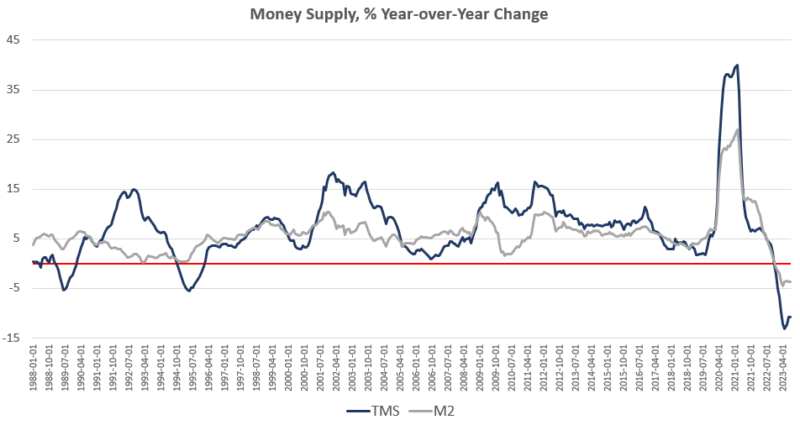Category Archive: 6b.) Mises.org
When It Comes to Economic Analysis, Your “Opinion” Is Irrelevant
I was recently in a room presenting to a group of about thirty. At one point, one of my fellow presenters said, “In my opinion, that is why this area of the country has lost so many jobs.” I held my tongue but couldn’t help but think, “Nobody cares about your so-called economic opinion.” Economics is based on the science of human action. We can, with certainty, deduce certain causes and effects. Your opinion on something is akin to saying, “In my...
Read More »
Read More »
The Male/Female Wage Gap and This Year’s Nobel Laureate
Brian Albrecht joins Bob to discuss the work of this year's Nobel (Memorial) Prize Winner Claudia Goldin, with an emphasis on the male-female wage gap.
The Male/Female Wage Gap and This Year's Nobel Laureate
Video of The Male/Female Wage Gap and This Year's Nobel Laureate
Claudia Golden and Tyler Cowan Discuss The Gender Earnings Gap: Mises.org/HAP418a
Claudia Golden's Paper on The...
Read More »
Read More »
Is a Welfare State Consistent with Libertarianism?
Governing Least: A New England Libertarianismby Dan MollerOxford University Press, 2021; xii + 326 pp.
Dan Moller’s thoughtful book is packed with arguments, and in what follows I’ll be able to discuss only a few points of interest. The central thread of the book concerns the welfare state in contemporary capitalist societies. Moller is not a strict natural rights libertarian in the style of Murray Rothbard, who would rule out the welfare state in...
Read More »
Read More »
On Centralization, Decentralization, and Self-Defense
[See this lecture as a video.]
States, regardless of their constitution, are not economic enterprises. In contrast to the latter, states do not finance themselves by selling products and services to customers who voluntarily pay, but by compulsory levies: taxes collected through the threat and use of violence (and through the paper money they literally create out of thin air). Significantly, economists have therefore referred to governments—i.e.,...
Read More »
Read More »
The American Front of the Hamas-Israeli War
On this episode of Radio Rothbard, Ryan McMaken and Tho Bishop look at the consequences of the Hamas-Israeli War may have on Americans. Looking at lessons from the War on Terror and other military conflicts, Ryan and Tho consider the economic costs, threats to personal liberty, and dangers of escalation that could lead to direct US involvement.
"Falling Military Recruitment Is Another Sign of Waning Faith in the Regime" by Ryan...
Read More »
Read More »
Cotton Pickin’ Sanctions
On yet another crusade, US authorities have sanctioned Chinese cotton imports. The sanctions won't change Chinese policies but they will create hardships for many.
Original Article: Cotton Pickin' Sanctions
Read More »
Read More »
How Can Electricity Providers Promise 100 Percent Green Energy? Probably Not
We expect the lights to come on when we flip a switch, unconcerned with how the electricity is produced or how it reaches our homes. We are aware of telephone poles, wires overhead, and transmission towers, solar panels, and windmills across the countryside. But as long as we pay our electric bills, we trust electric utilities to provide our power somehow.
Who produces the electricity we use? Where does it come from? How does it reach us when we...
Read More »
Read More »
All Hail the Uniparty’s Demise and the Rise of RFK
Recorded at the Mises Institute Supporters Summit in Auburn, Alabama, 12-14 October 2023. Includes an introduction by Dr. Sandra Klein.
Sponsored by William Haynes.
All Hail the Uniparty’s Demise and the Rise of RFK | David Stockman
Video of All Hail the Uniparty’s Demise and the Rise of RFK | David Stockman
Read More »
Read More »
Living Libertarian: Brief Biographies
Why do people become libertarians? What attracts them to Austrian economics?
Original Article: Living Libertarian: Brief Biographies
Read More »
Read More »
Correlations and the Definition of the Money Supply
According to popular thinking, the definition of money is flexible. Sometimes the money supply could be M1 (currency and demand deposits); at other times it could be M2 (all of M1, plus savings deposits, time deposits, and money market funds) or some other M. According to popular thinking, what determines whether M1, M2, or some other M is considered the money supply is whether it is well correlated with key economic data such as the gross domestic...
Read More »
Read More »
Managing the Influx
Recorded at the Mises Institute Supporters Summit in Auburn, Alabama, 12-14 October 2023. Sponsored by Bob Tancula.
Includes awarding of the George F. Kother Free-Market Writing Award by Ben Koether.
Managing the Influx | Shawn Ritenour
Video of Managing the Influx | Shawn Ritenour
Read More »
Read More »
How the End of US Dollar Hegemony Affects the Business Landscape
Recorded at the Mises Institute Supporters Summit in Auburn, Alabama, 12-14 October 2023. Sponsored by Michael and Lisa Keller.
Download the slides from this lecture at Mises.org/SS23_PPT_7
How the End of US Dollar Hegemony Affects the Business Landscape | Peter Klein
Video of How the End of US Dollar Hegemony Affects the Business Landscape | Peter Klein
Read More »
Read More »
The Dollar Descent
Recorded at the Mises Institute Supporters Summit in Auburn, Alabama, 12-14 October 2023. Sponsored by Gregory and Jane Gandee.
Download the slides from this lecture at Mises.org/SS23_PPT_6
The Dollar Descent | Mark Thornton
Video of The Dollar Descent | Mark Thornton
Read More »
Read More »
Fractional Reserve Banking, Present Discounted Value, and the Austrian Business Cycle Theory
Recorded at the Mises Institute Supporters Summit in Auburn, Alabama, 12-14 October 2023. Sponsored by Thomas and Lisa Dierl.
Fractional Reserve Banking, Present Discounted Value, and ABCT | Walter Block
Video of Fractional Reserve Banking, Present Discounted Value, and ABCT | Walter Block
Read More »
Read More »
Central Bank Digital Currencies: The Last Battle in the War on Cash
Recorded at the Mises Institute Supporters Summit in Auburn, Alabama, 12-14 October 2023. Sponsored by Dan Johnson and Randee Laskewitz.
Central Bank Digital Currencies: The Last Battle in the War on Cash | Jonathan Newman
Video of Central Bank Digital Currencies: The Last Battle in the War on Cash | Jonathan Newman
Read More »
Read More »
Government-Managed Digital Currency: A Further Threat to Our Freedom
Recorded at the Mises Institute Supporters Summit in Auburn, Alabama, 12-14 October 2023. Sponsored by Mark Strategos.
Government-Managed Digital Currency: A Further Threat to Our Freedom | Paul Gottfried
Video of Government-Managed Digital Currency: A Further Threat to Our Freedom | Paul Gottfried
Read More »
Read More »
Assessing the BRICS Expansion: Debunking Expectations
Although there has been excitement and fanfare over the recent BRICS meetings and proclamations, it is doubtful that these economies’ performance can match their rhetoric.
Original Article: Assessing the BRICS Expansion: Debunking Expectations
Read More »
Read More »
The Parasitic Rich Men North of Richmond
Seemingly coming out of nowhere was the song “Rich Men North of Richmond,” by singer-songwriter Oliver Anthony. Overnight, the laments of one man from Appalachia over the state of the American economy and government spread like wildfire.
In “Rich Men North of Richmond” Anthony decries the declining value of the US dollar, the lack of accountability for those on Jeffrey Epstein’s client list, and the use of taxpayer dollars to fund obesity through...
Read More »
Read More »
Credit Tightens as the Money Supply Falls for Ten Months In a Row
Money supply growth fell again in August, remaining deep in negative territory after turning negative in November 2022 for the first time in twenty-eight years. August's drop continues a steep downward trend from the unprecedented highs experienced during much of the past two years.
Since April 2021, money supply growth has slowed quickly, and since November, we've been seeing the money supply repeatedly contract year over year. The last time the...
Read More »
Read More »
The Phony Debate on Fiat Money: Rules versus Discretion
Recorded at the Mises Institute Supporters Summit in Auburn, Alabama, 12-14 October 2023. Sponsored by Wilfried and Barbara Puscher
The Phony Debate on Fiat Money: Rules versus Discretion | Joseph T. Salerno
Video of The Phony Debate on Fiat Money: Rules versus Discretion | Joseph T. Salerno
Download the slides from this lecture at Mises.org/SS23_PPT_2
Read More »
Read More »



























